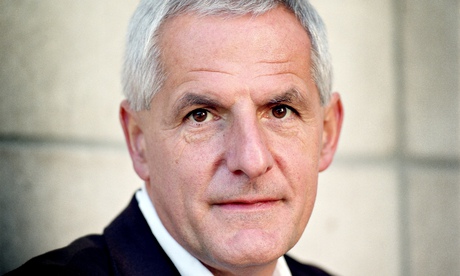
The Dutch physician Joep Lange, who has died aged 59 in the crash of the Malaysia Airlines flight MH17 in eastern Ukraine, was one of the world’s top clinical Aids researchers. Along with his partner, Jacqueline van Tongeren, and other delegates, he was flying from Amsterdam to the International Aids Conference in Melbourne, Australia. The event was organised by the International Aids Society, of which he was the president from 2002 to 2004.
As a young doctor specialising in infectious diseases at the Academic Medical Centre of the University of Amsterdam in 1983, in the early days of the Aids epidemic, Joep led research on the clinical evolution of HIV infection as part of the now historic Amsterdam cohort studies on Aids. In seeking to understand the causal relationship be tween HIV (human immunodeficiency virus) and Aids (acquired immune deficiency syndrome), he and his colleagues demonstrated that severe immunological abnormalities happened very early on after infection, that virus load and replication were instrumental in the pathogenesis of Aids, and that there are major infection reservoirs of HIV. His early work led to his 1987 PhD thesis on “serological markers in HIV infection”, showing among other findings that high levels of HIV core protein p24 are a key determinant of disease progression.
Joep’s main contribution to the field was the development of antiretroviral therapy. From the early 1990s he conducted numerous clinical trials on HIV treatment, often in collaboration with his many colleagues around the world. Studies were conducted through the International Antiviral Therapy Evaluation Centre, Amsterdam, and the Netherlands Australia Research Collaboration on HIV with his friends David Cooper and Praphan Phanuphak in Thailand.
An illustration of his understanding of the pathogenesis of HIV infection and of antiviral therapy was his argument as early as in 1995 that only treatment with at least three antiretroviral drugs could provide lasting treatment for HIV infection without inducing drug resistance in the virus. In addition, he argued for the initiation of therapy early in the course of the infection. He was right before empirical evidence was available, and both concepts lie at the foundation of modern antiretroviral therapy. It is thanks to his groundbreaking research that the number of babies infected with HIV through transmission from their mother has significantly decreased.
Joep was not only a scientist and clinician, but, as with so many early Aids researchers, also an activist. He felt that his responsibility did not stop with publishing a scientific paper and he would not rest until people in need were able to benefit from his research. He worked tirelessly on widening access to antiretroviral therapy from the mid-90s, when death rates among people living with HIV in poorer countries were high because of a lack of treatment.
This he did in different ways – not just as president of the International Aids Society, but as chief of clinical research and drug development at the World Health Organisation’s global programme on Aids in Geneva (1992-95), as founder in 2001 of PharmAccess, which promotes affordable health care in Africa, and as scientific director of HIV(e)ducation, an online training system for HIV healthcare providers. He was concerned about the long-term availability of antiretrovirals at cheaper prices, and rising rates of HIV drug resistance in Africa as a result of poor patient management and lack of proper monitoring – two potential threats to the long-term impact of antiretroviral therapy.
As the founder of the Amsterdam Institute for Global Health and Development, he brought together all the major Dutch players in the field. His interests had expanded to the financing of health care, particularly using the private sector through the Health Insurance Fund, an initiative of Dutch insurance companies and multinationals with operations in Africa, and to cardiovascular diseases in the continent.
Born in Nieuwenhagen, in the southern province of Limburg, Joep studied medicine at the University of Amsterdam, and gained his MD in 1981. In 2006 he became professor of infectious diseases at the university. He had a heart of gold and a strong sense of humour, and could be quiet and reflective until stirred to action after making up his mind. His writing was sharp and elegant and he had the courage to swim against the tide of what he saw as petty political correctness obstructing progress, such as in his argument with some Aids activists about trials of pre-exposure prophylaxis – through a preventive pill that can work to keep HIV from establishing a permanent hold – in Asia and Africa.
Joep, an agnostic, had a deep love and knowledge of culture, particularly Dutch, English and French literature, all of which he read in the original version. He and I shared a profound admiration for the great 20th-century Flemish writer Willem Elsschot. Now and then he would send me a book, with a note in Dutch: “Enjoy. What a writer!” He could also be an absent-minded professor, leaving manuscripts, notes, books, and even a pair of skis behind at my home or office.
Jacqueline was an HIV nurse who went on to become head of communications at PharmAccess.
Joep is survived by his son, Max, and four daughters, Anna, Maria, Martha and Ottla, from his marriage to Heleen.
• Joep (Joseph Marie Albert) Lange, specialist in infectious diseases, born 25 September 1954; died 17 July 2014
